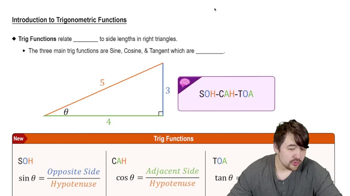7–84. Evaluate the following integrals.
49. ∫ tan³x · sec⁹x dx
 Verified step by step guidance
Verified step by step guidance Verified video answer for a similar problem:
Verified video answer for a similar problem:



 5:28m
5:28mMaster Integrals Resulting in Basic Trig Functions with a bite sized video explanation from Patrick
Start learning